Forty-four-year-old journalist Nataliya Dedova from Mariupol devoted 22 years of her life to local television, with eight of those years spent at the “Sigma” channel, where she served as the editor of the “Dzerkalo” (Mirror) news program before the war. Throughout those 22 years, Nataliya was always by the side of her cameraman and photographer husband, Viktor Dedov, who worked for the same channel. The happiness of the well-known TV family in the city shattered in an instant: on March 11th, Viktor was killed in their apartment when two shells hit…
February 25th — was the last working day at the channel.
On February 24th, Nataliya and Viktor woke up at 5 a.m. Colleagues’ messages about the war’s start were buzzing in the editorial chat, while Viktor watched the news. The surreal reality hadn’t yet reached their neighborhood as the sounds of explosions remained distant.
— No one expected such horror to begin, — Nataliya reflects on the recent past. — It seemed like two or three days, and it would all be over, resolved through negotiations or something. That morning, unable to find the keys to our car, we set out to work on foot. The first thing we saw was long lines at ATMs. Public transportation was running as usual, and Ukrainian flags were flying all over the city.
At that time, the TV studio started preparing news broadcasts for the “Donbas” channel, as it was planned for “Sigma” and “Donbas” to broadcast simultaneously. Meanwhile, relatives of the journalists from the left bank began reporting explosions, and an urgent film crew was dispatched there.
— A correspondent called: ‘It’s very scary here, very loud, I’m coming back.’ I said, ‘Of course, come back’… We prepared several news segments about the situation in the city and Donbas on February 24th. We returned home around 10 p.m., and people were still lining up at the ATMs, — the journalist recalls.
On February 25th, the Dedovs’ last day at “Sigma,” they felt it might be their final gathering with the team. The struggle for survival began, and some colleagues tried to maintain news updates at the studio, despite intermittent electricity and internet outages. TV professionals turned to “Sigma” and “Donbas” websites and social media pages. Nataliya Dedova, in particular, covered topics like the absence of sirens, food distribution, transportation, and pharmacies and shared updates from local authorities, including the mayor’s statements.
On March 2nd, the electricity, heating, water, and communication disappeared, followed by gas on March 5th. Only faith in negotiations remained. No one believed that Mariupol would be destroyed, that people would be killed in Mariupol in the literal sense – every day, every minute…

“In two neighboring 12-story buildings, not a single windowpane remained.”
As the days passed, the war tightened its grip on the city. Drinking water came from the city’s supply, and technical water was drained from batteries in the basement. Food was cooked over an open fire in the yard, and luckily, the Dedov family had sufficient supplies.
On March 7th, Nataliya visited a friend in pediatric intensive care and saw people making extraordinary efforts to survive. Some sought shelter from shelling, while wounded individuals received medical aid. Public buildings, like the philharmonic and drama theater, became shelters.
— In the theater, there were so many people that there wasn’t enough air. They were lying on the set pieces, standing, sitting. But if it weren’t for the air bomb that hit the building on March 16th, they would have survived — Mrs. Dedova is convinced.
On March 8th, Nataliya was at the intensive care unit, collecting contact numbers of patients, doctors, and residents. She used their proximity to a mobile tower on the 9th floor of their building to make calls. In their apartment, Nataliya, Viktor, their 14-year-old son Sasha, and two elderly family members, Nataliya’s mother and Viktor’s father, were staying.
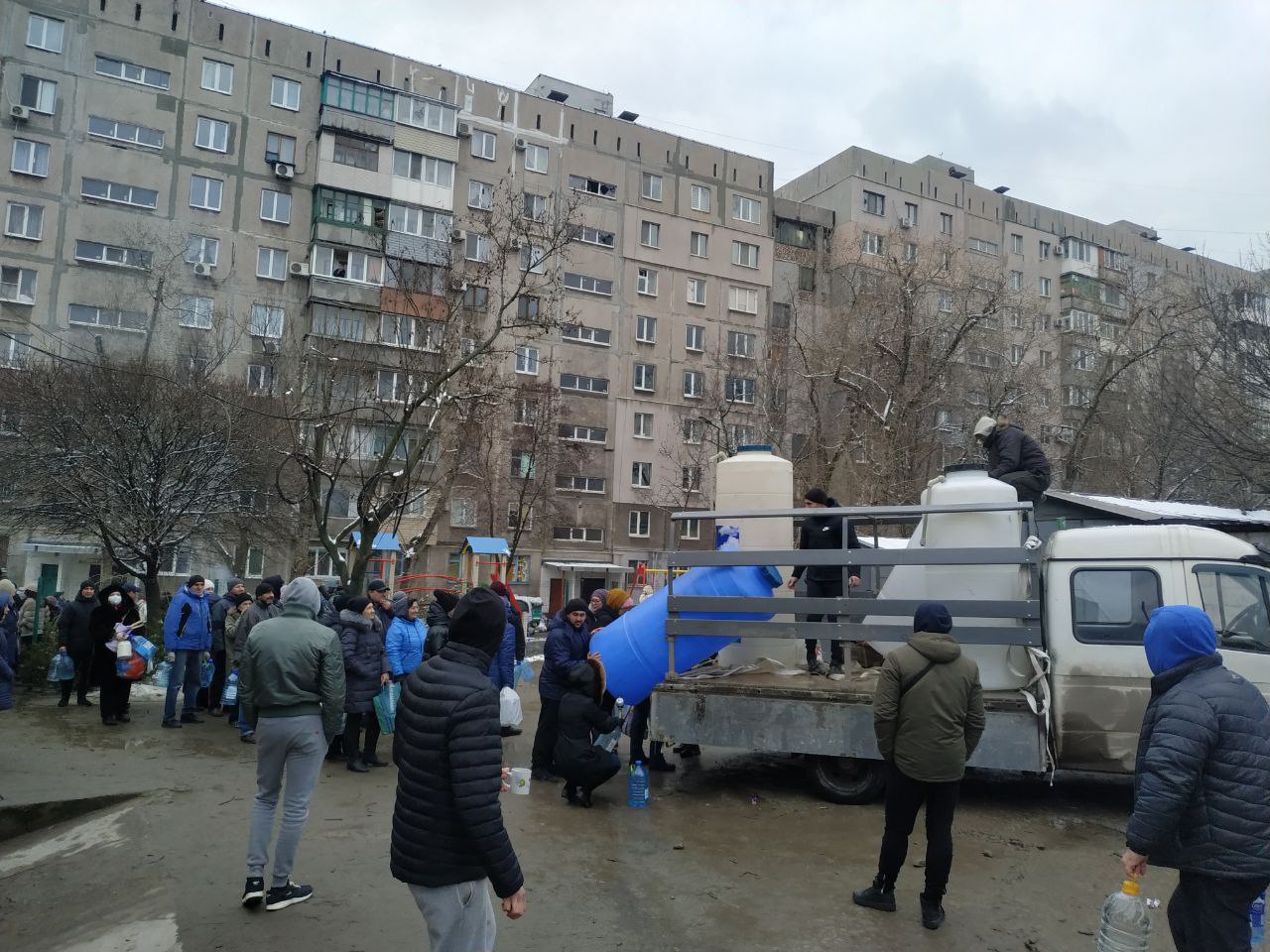
The next day, March 9th, could have been their last day on Earth.
— We heard very loud explosions, and the building shook. Sasha and I ran downstairs while my husband and my mother stayed in the apartment. Outside, we saw that not a single windowpane was left in the two neighboring 12-story buildings. We rushed to the nearby hospital complex, where we found out that air bombs had been dropped on the maternity hospital and the building of the Priazov State Technical University in the city center. The windows were blown out in the intensive care unit. But the staff continued to save patients until the hospital was destroyed, — Nataliya recounts.
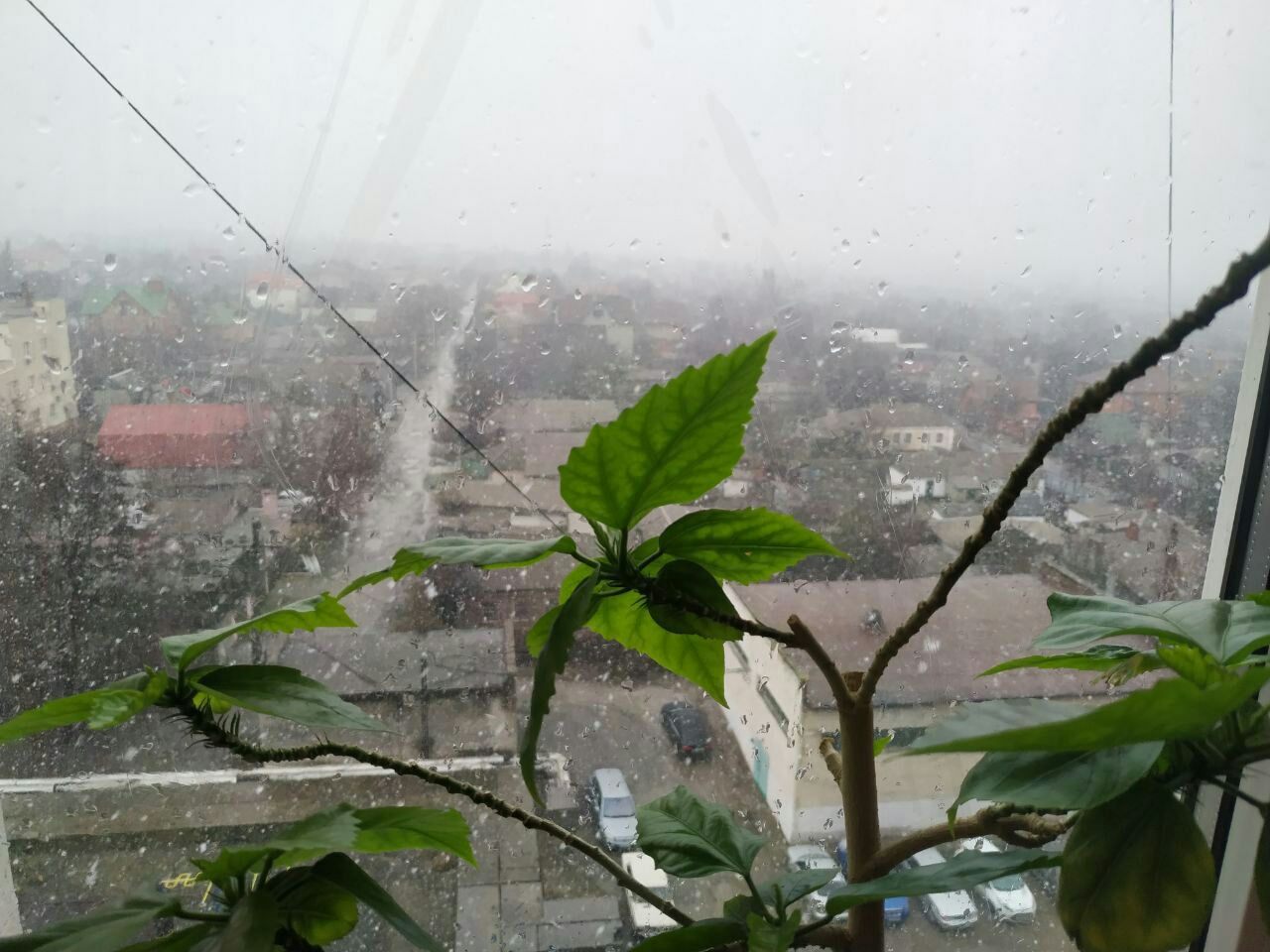
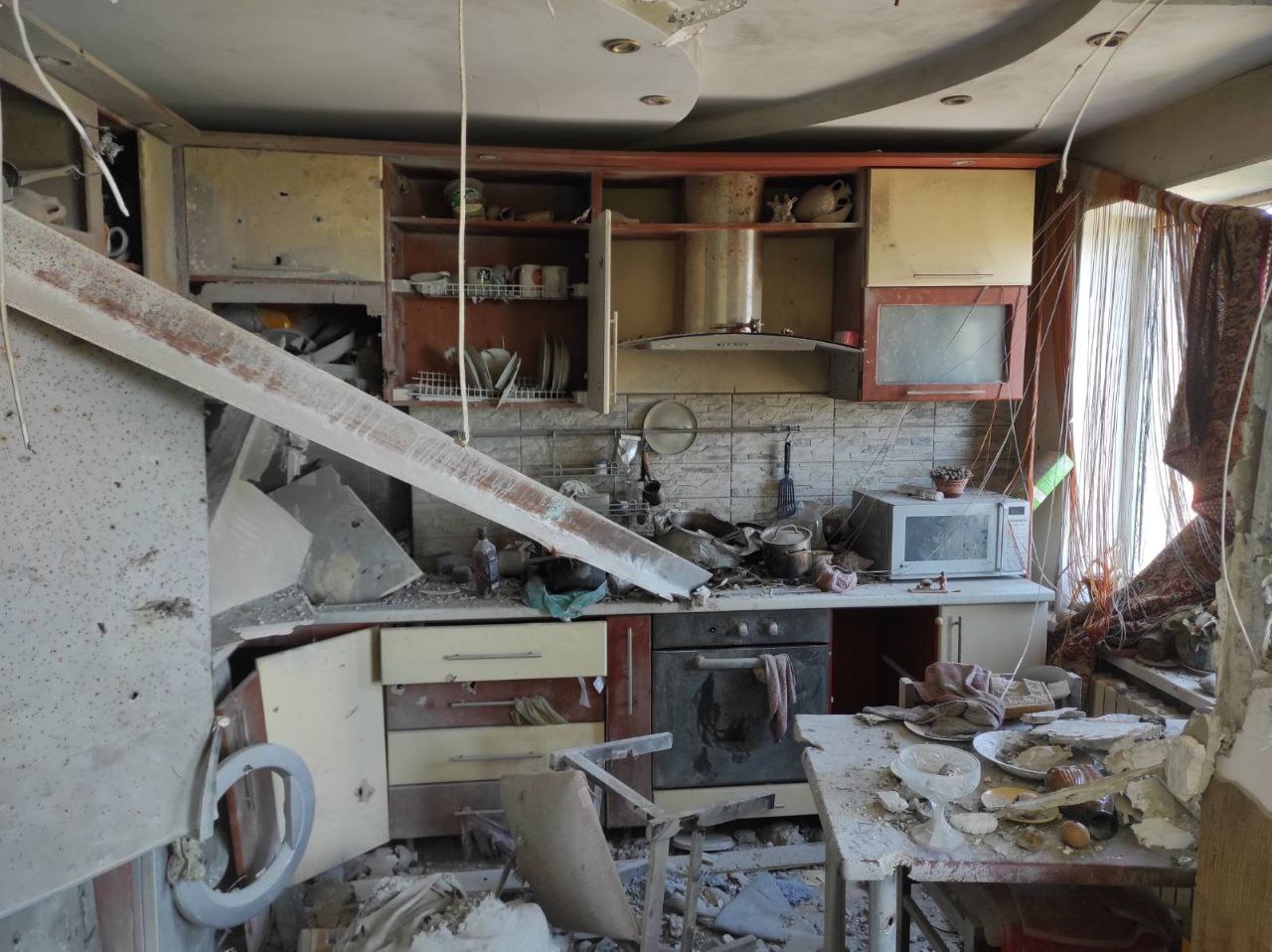
“I turned towards the apartment and screamed, ‘Vitya, Vitya!!!’ The dead silence in response is something I will remember for the rest of my life.”
On the night of March 9th to 10th, she and her child stayed with friends nearby in a private house. Twenty-six people had gathered here, sleeping wherever they could, with the Dedovs under a large table. But sleep eluded them. The woman constantly ran to the window to check on her apartment: were the windows intact because her husband was there with his 86-year-old father and Natalia’s mother.
In the morning, Nataliya and her son returned home, and from March 11th, the family didn’t venture outside anymore. Meanwhile, gunfire echoed from all directions, and the city was in flames.
On the morning of March 11th, Nataliya and her family prepared to leave their home. Despite packing their belongings, they couldn’t believe they would actually leave. Their son expressed a desire to go to Lviv for croissants and hot chocolate, as they had been surviving on basic food. Victor reassured him, and as they walked through the corridor, Nataliya suggested leaving, but Victor insisted on staying. About ten minutes later, they hastily left the apartment, but Victor remained behind, never to return…
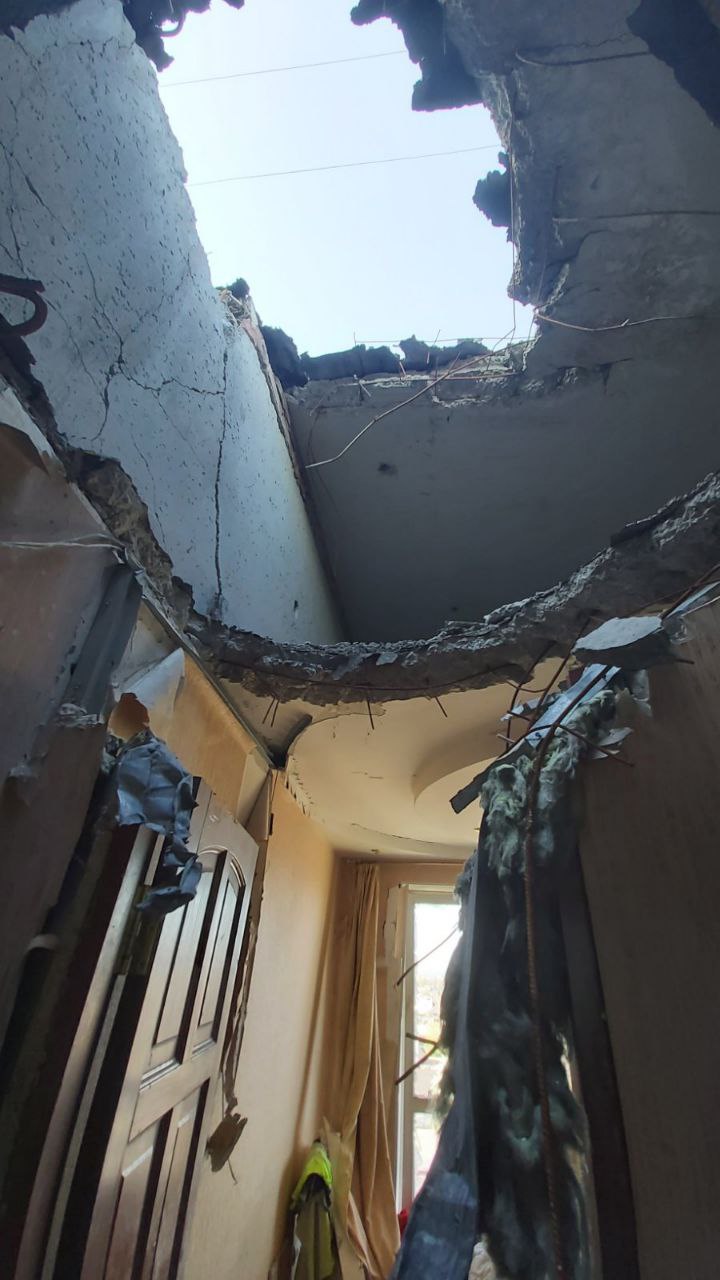
Nataliya managed to enter the bedroom, grab some supplies from the balcony, and close the balcony doors. Then, together with her mother, they covered the window with a rug in case of an explosive shockwave. And then… the first shell struck.
— However, I don’t know for sure what it was – a shell, a mine, or a bomb… My mother and I were wounded in the head. I screamed, the ceiling started to crumble, and everything around turned white. Breathing became very difficult. I grabbed my mother’s hand, and we went through the rubble to the corridor. I shouted three times, ‘Sashko, where are you?!’ He responded three times from the depths of the apartment, ‘Mom, I’m here!’ Sasha grabbed his grandfather – my father-in-law, and Vitya began to exit the kitchen and suddenly turned to his son: ‘I have little light…’ even though the sun was shining through the window. The boy handed his father a flashlight. And when they were walking together towards the corridor, the second shell hit the apartment. About 10 seconds elapsed between the impacts… My son managed to escape from the apartment. In the confusion in the corridor, I stumbled upon my father-in-law – he was lying under Victor. But at that moment, I didn’t see Victor; I couldn’t see anything in the corridor – I just grabbed my father-in-law, led him to the elevator, and placed him on a chair. I could see that my husband… was not there. I couldn’t understand: how could he not be here when he spent 22 years with me?! I screamed, ‘Vitya, Vitya!!!’ But there was such dead silence… I will remember this silence for the rest of my life. I ran back into the apartment and saw my husband lying motionless… And I still don’t understand how to live without him.
Nataliya never got the chance to say goodbye to Victor. In the following days, she tried to enter the apartment under bombardment, but the door was stuck. She shouted to two men who volunteered to help her with axes and crowbars: “I want to say goodbye! Please do something so I can go in!..” Unfortunately, they couldn’t…
Staying at home was no longer an option. The family initially sought refuge with the same neighbors, and then, for three days, they hid from shelling in the basement of a multi-story building. On the morning of March 16th, they heard naval artillery, which was more terrifying than all the horrors they had previously endured.
On the same day, the Dedovs managed to leave the city. Nataliya was most concerned about her son because if something happened to her, he would be left an orphan.
Life After Mariupol: Support and Betrayal.
In the bombed-out Mariupol, Nataliya documented the destruction with her smartphone, including the ruined maternity hospital, her burning home, and the traumatized people in the drama theater. However, they had to delete most of the files before leaving the city to avoid detection by the occupiers, as it would have meant certain death. She saved mostly neutral content like city streets, outdoor cooking, and memories of her late husband. Many photos were stored on a hidden hard drive.
On March 17th, the Dedovs found themselves in the occupied territory near Melitopol, where they were forced to stay for two weeks. Here, Nataliya watched Russian television channels and was shocked by their presentation of events she had witnessed with her own eyes.
— In Russian news, they reported that Ukrainian soldiers were hiding in the maternity ward, so the Russians dropped a bomb there. That’s when I finally realized that Russian propaganda is an entirely different world, — said the journalist.
From the occupied territory, Nataliya Dedova managed to call a fellow Mariupol native, Mykola Osychenko, the president of MTV (“Mariupol Television”). Following his advice, she destroyed her journalist credentials for safety reasons and then traveled to the free territory in Zaporizhzhia.
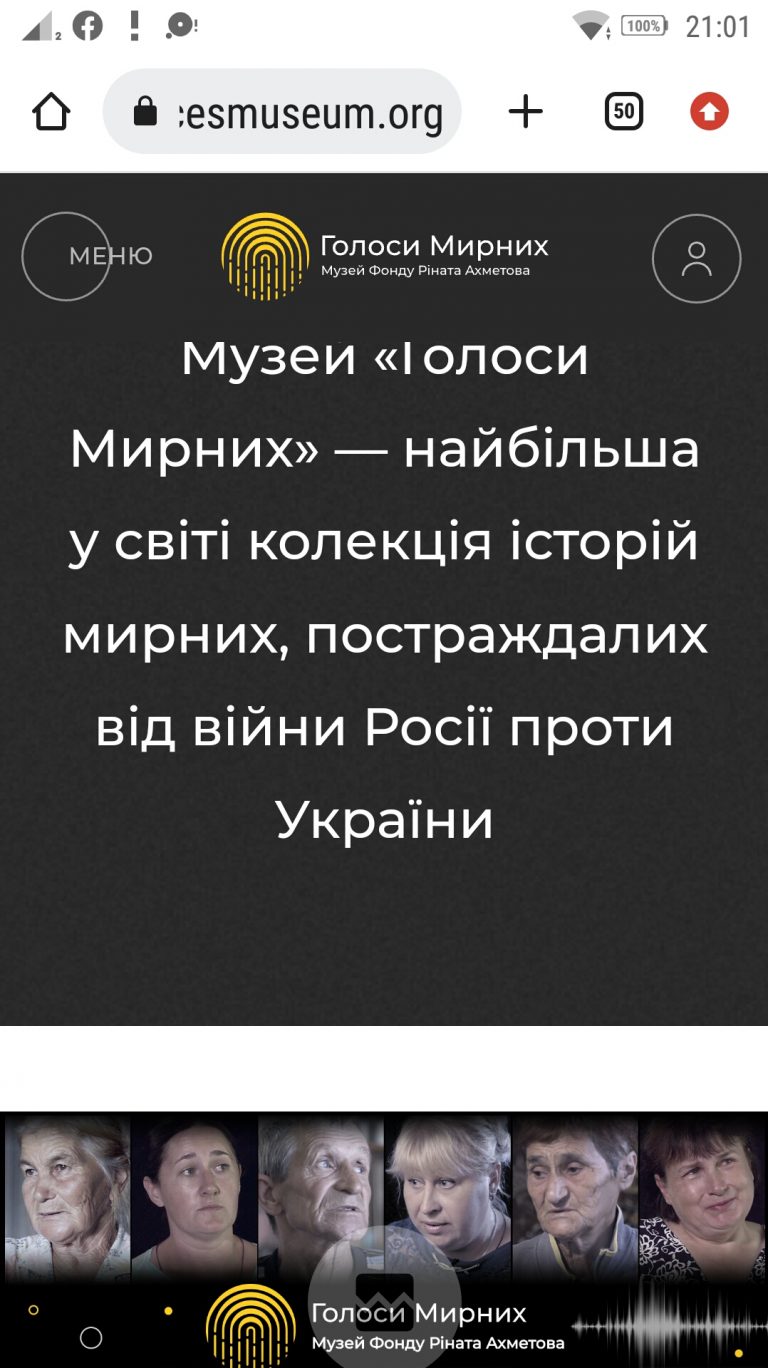
After a few days, Mykola Osychenko offered her the opportunity to conduct remote video interviews with Mariupol residents who had experienced the same as she had, for the “Voices of the Peaceful” project by the Rinat Akhmetov Foundation (civilvoicesmuseum.org). Nataliya agreed to this task. Firstly, it was her professional mission, and secondly, it provided her with the strength to psychologically cope with her own situation.
Escaping from the occupation was not the final trial: in October, in Zaporizhzhia, the family once again experienced a rocket attack on the pension where they were temporarily staying. The immense fear returned… After this attack, they decided to move to Kyiv.

— I didn’t want to live. It lasted for six months. Initially, these stories of other people were killing me, it was extremely difficult to listen to them, — Nataliya openly discusses her emotional state. — But now, after nine months, it’s somehow easier to write them. This pain has transformed into something else. I want people to know how everything happened. I publish these stories on my Facebook page, and readers ask where I find the strength after everything that happened to me. But I understand that if I survived, it was for a reason. I’ve been writing these stories since April, and I’ve collected more than 250 of them. People voluntarily come forward to tell how they survived the loss of their loved ones. And I want even those who are still in that territory to hear this truth. We were in the same war, hiding in the same basements. But somehow, our perception of this shared tragedy is different. Some of my former friends ask, ‘Nat, did you ever think that the ‘Azov’ soldiers were killing you?’ So, it’s one war but two truths. Everyone has their own. They even called me back: ‘Come back!’ But where and how could I go back? Half of me was killed there. I couldn’t even bury my husband. The ‘liberators’ did it—I found out this from the photos I had to see. And I couldn’t even put up a plaque in Ukrainian on the grave because it might be desecrated.

Nataliya is even more shocked by the behavior of some former colleagues:
— My husband taught the profession of a camera operator to many willing individuals. One of them is Viktor Zubenko. Now he claims that he (my husband) was killed by the Ukrainian Armed Forces… He says so because instead of his destroyed apartment, he was given a new one in a newly constructed building. We no longer communicate with him, but it is very painful for me. It hurts when colleagues who now work on the occupant’s channel ‘Mariupol 24’ say, ‘Natasha, we are outside of politics.’ I don’t understand why my colleague Sasha Buzuluk is now saying in interviews that the Ukrainian army visited MTV channel in the spring, and because of that, everything was destroyed and burned there. These people simply do not exist for me anymore. Unfortunately, they exist there and tell the local people THIS truth. And these people easily believe in THAT truth because they have no other source; Ukrainian news is impossible there. In March and April, over 130,000 Mariupol residents died! About 30,000 of them were unrecognizable! That’s why we will continue to write these stories so that the world knows the truth so that everyone who wants to tell their survival story in the Mariupol hell is heard.
Nataliya is determined to share these stories to ensure that the world knows the truth about the events in Mariupol and to give a voice to those who want to share their stories of survival.
This series, titled Executed Free Speech, is created as part of a project Drawing Ukrainian And International Audience’s Attention To Serious Violations Of Human Rights And Crimes Against Journalists And Mass Media By The Russian Federation, which is performed by the National Union of Journalists of Ukraine, with support from the Swedish non-profit organization Civil Rights Defenders.
JOURNALISTS ARE IMPORTANT. Stories of Life and Work in Conditions of War is a cycle of materials prepared by the team of the NUJU with the support of the Swedish human rights organization Civil Rights Defenders.
#CRD

 THE NATIONAL UNION OF
JOURNALISTS OF UKRAINE
THE NATIONAL UNION OF
JOURNALISTS OF UKRAINE
















Discussion about this post